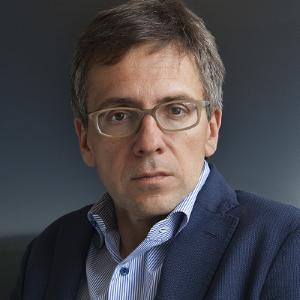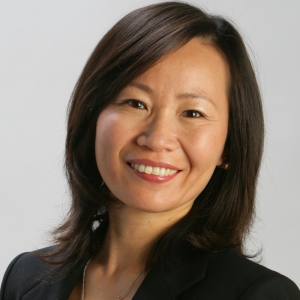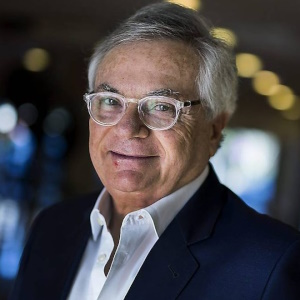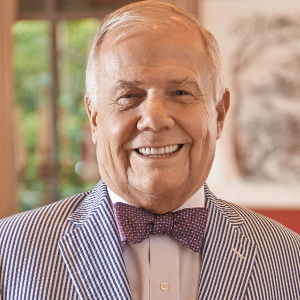Ian Bremmer Speaker Biography
President, Eurasia Group, Host of GZERO World with Ian Bremmer, Expert on Global Politics & Risk Management and Best-Selling Author
Ian Bremmer is a political scientist who helps business leaders, policy makers, and the general public make sense of the world around them. He is president and founder of Eurasia Group, the world’s leading political risk research and consulting firm, and GZERO Media, a company dedicated to providing intelligent and engaging coverage of international affairs. Ian is an independent voice on critical issues around the globe, offering clearheaded insights through speeches, written commentary, and even satirical puppets (really!).
GZERO
He is the host of GZERO World with Ian Bremmer, which airs weekly on US national public television. Ian is also a frequent guest on CNN, Fox News, MSNBC, the BBC, Bloomberg, and many other television stations around the world.
Risk Management
Ian is credited with bringing the craft of political risk to financial markets, creating Wall Street’s first global political risk index (GPRI), and for establishing political risk as an academic discipline. His definition of emerging markets—”those countries where politics matters at least as much as economics for market outcomes”—has become an industry standard. “G-Zero,” his term for a global power vacuum in which no country is willing and able to set the international agenda, is widely accepted by policymakers and thought leaders.
Books
A prolific writer, Ian is the author of ten books, including the New York Times bestseller Us vs Them: The Failure of Globalism which examines the rise of populism across the world. His latest book is The Power of Crisis: How Three Threats – and Our Response – Will Change the World. He also serves as the foreign affairs columnist and editor at large for Time magazine. He currently teaches at Columbia University’s School of International and Public Affairs and previously was a professor at New York University.
Education
Ian earned a master’s degree and a doctorate in political science from Stanford University, where he went on to become the youngest-ever national fellow at the Hoover Institution. He received his bachelor’s degree in international relations from Tulane University.
Eurasia Group
Ian established Eurasia Group with just $25,000 in 1998. Today, the company has offices in New York, Washington, San Francisco, London, Brasilia, Sao Paulo, Singapore, and Tokyo, as well as a network of experts and resources in 90 countries.
Ian Bremmer Speaking Topics
The Rise of the Different: Why the Global Order Doesn’t Work- and What We Can Do About It
Today, the American-led global order faces a fundamental challenge. It is not, however, the rise of the "rest." It’s the rise of the "different." As the dust settled after World War II, the United States emerged as arguably the most powerful state in history, and it set out to create a world order in its own image. The US shaped a multilateral system underpinned by globalization, serving U.S. interests but also those of anyone who accepted American preferences. The ‘rest’ who rose were like-minded, advanced industrialized democracies that bought into and buttressed the liberal international order. Today, the world has fundamentally changed. Rising emerging market nations are much poorer, they are less diplomatically experienced, and they have different priorities and political systems. Perhaps most importantly, they are inherently less stable. What does this mean for the global order? It’s difficult enough to come to an agreement on complicated questions among five negotiators (as meetings of the United Nations Security Council have always demonstrated). But with the rise of so many other players who cannot be ignored—and aren’t ready to agree—conflict and a lack of leadership will increasingly be the norm.
After the G-Zero: Overcoming Fragmentation
The global order that prevailed since the end of the Second World War has hit its limits. A breakdown in longstanding domestic, regional, and international political equilibria is making policymakers both less able and less willing to collaborate internationally. The result: a G-Zero world characterized by a growing vacuum in global governance. Ian Bremmer predicts a new world order that will succeed our G-Zero reality. The question, is whether citizens across the world will remain passive throughout this process, or take on a proactive role in determining what future they want to live in. This new world order will be characterized by three important developments. 1. The end of a cycle 2. The end of politics as you knew it 3. Saving global governance from the G-Zero Mr. Bremmer will share his insights and views to help attendees understand the broader issues to consider as they formulate policy portfolios for the years ahead.
Superpower: Three Choices for America's Role in the World
Global policy expert Ian Bremmer calls for a complete rethink of America’s role in tomorrow’s world. In an increasingly volatile international environment, the question has never been more important. Bremmer explores three choices, each with its own benefits and drawbacks: “Independent America” argues that it’s time for Washington to declare independence from the responsibility to solve everyone else’s problems. Instead, America should lead by example by investing in America’s enormous untapped potential; “Moneyball America” acknowledges that we can’t manage every international challenge but asserts that we must defend U.S. interests wherever they’re threatened. It looks beyond phony arguments about American exceptionalism with a clear-eyed assessment of U.S. strengths and limitations; and, “Indispensable America” insists that only Washington can promote the values on which global stability increasingly depends in our hyper-connected world. Turning inward would threaten America’s security and prosperity.
Managing Risk in an Unstable World
To navigate globalization's choppy waters, every business leader analyzes economic risk when considering overseas investments or looking at market exposure. But do you look beyond reassuring data about per-capita income or economic growth to assess the political risk of doing business in specific countries? If not, you may get blindsided when political forces shape markets in unexpected ways--from European accession in Turkey, social unrest in India, or protectionist legislation on China. Acclaimed political analyst and entrepreneur Ian Bremmer explains that by blending political and economic risk analysis, you make savvier investment decisions--seizing valuable opportunities around the globe while avoiding danger zones.
The Fat Tail: The Power of Political Knowledge for Strategic Investing
The fallout from the still-unfolding global financial crisis provides several perfect examples of "fat tail" risk, those that flow from the low-probability, high-impact events that generate upheaval more often than we think. Bremmer shares with audiences how an understanding of the political dynamics generated by the financial crisis helps us forecast market risks, why politics matter more than ever for market performance, why the world's wealthiest countries have begun to behave like emerging market states, and what all this means for investors and companies. At this presentation audiences will learn: The risks that flow from low-probability, high-impact events...like the global financial crisis Why politics matter more for the performance of markets and for issues ranging from defaults to nationalization to regulatory reforms. Why developed states are behaving more like emerging markets. The shift from New York, Shanghai, and Mumbai to Washington, Beijing, and Delhi—and the risks that this trend creates.
The Politics of Global Energy
Oil prices are increasingly susceptible to international politics--for both the world's supply and demand. Ian Bremmer, founder and president of the world's largest political risk consultancy, shares his views on what's in store for the politics of global energy--from spiraling Chinese and Indian growth in consumption to the dangers of future oil export from the Middle East, Russia and the Caspian, and West Africa. At this speech audiences will learn: Why international politics matters to oil investors, financial institutions, and consumers alike. How to assess the real threats to oil production, and discount the headlines that don't matter. How a shift in global relations between the US and China will affect the global energy market.
Ian Bremmer Books
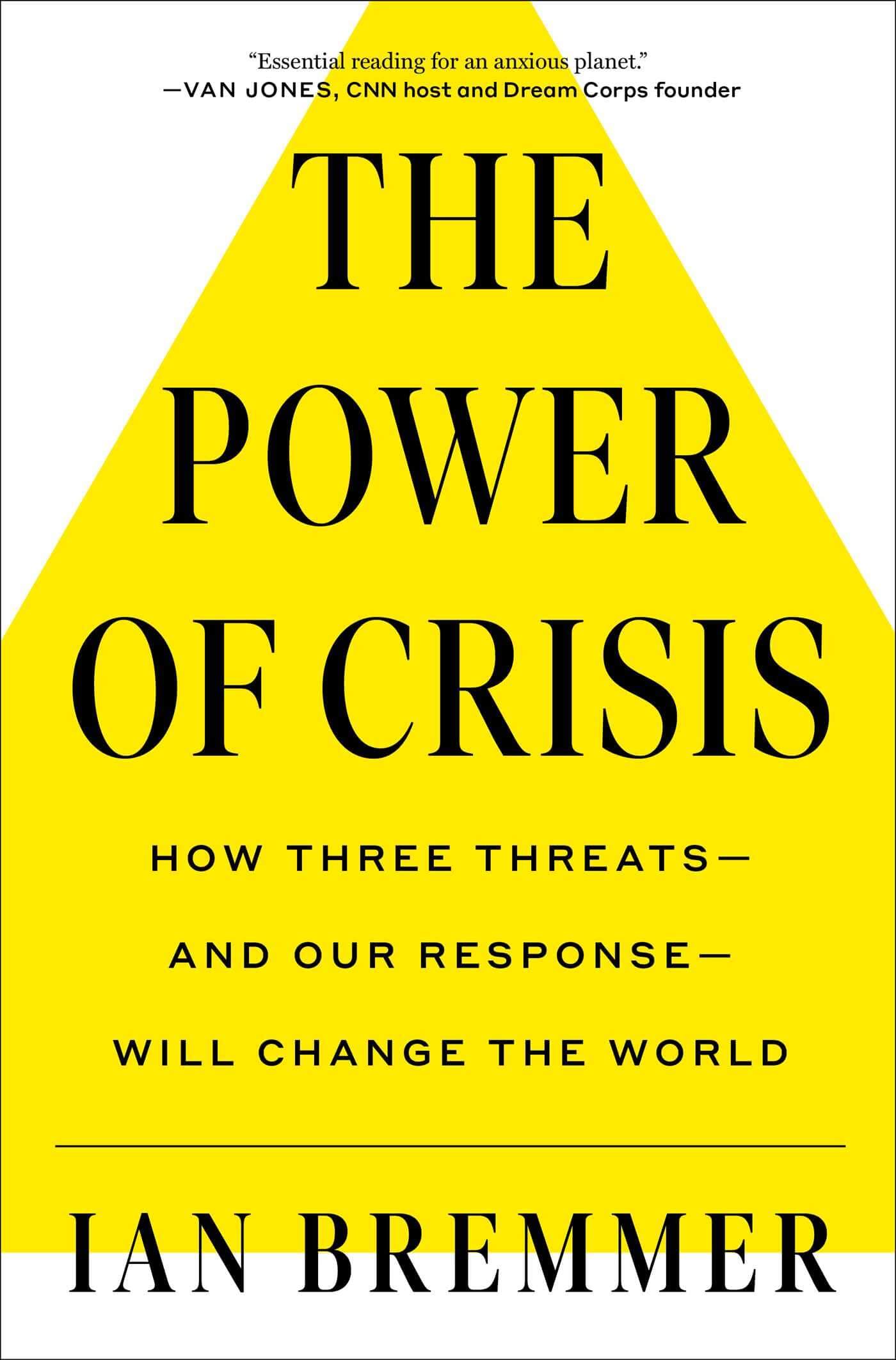
The Power of Crisis: How Three Threats – and Our Response – Will Change the World
Purchase Book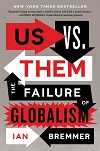
Us vs. Them: The Failure of Globalism
Purchase Book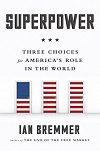
Superpower: Three Choices for America’s Role in the World
Purchase Book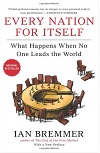
Every Nation for Itself: What Happens When No One Leads the World
Purchase Book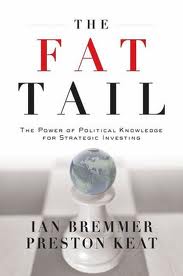
The Fat Tail: The Power of Political Knowledge for Strategic Investing
Purchase Book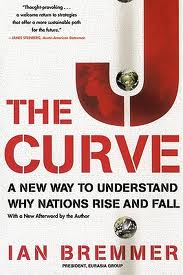
The J Curve: A New Way to Understand Why Nations Rise and Fall
Purchase Book

